
Coimbra: The Heartbeat of Portuguese History and Academia
Nestled on the banks of the Mondego River, Coimbra is a city that blends history, culture, and academic excellence. Known for its prestigious university, one of the oldest in the world, Coimbra offers visitors a rich tapestry of experiences. As you wander through its cobbled streets, you'll encounter architectural gems from different eras, including the Romanesque Old Cathedral and the Baroque Joanina Library, whose opulent interior is a feast for the eyes. Coimbra's vibrant atmosphere is partly fueled by its student population, which brings a youthful energy to the ancient city. The university traditions, such as the Fado de Coimbra—a melancholic style of music performed by students—give you a unique glimpse into the city's soul. Don't miss the chance to attend a live performance; it's an unforgettable experience. Beyond its academic prowess, Coimbra is also a culinary delight. Savor traditional Portuguese dishes in local tascas (taverns), and don't forget to try the local pastry, Pastel de Santa Clara, a sweet treat named after the city's convent. For those looking to explore further, Coimbra is surrounded by beautiful landscapes and quaint villages, making it an ideal base for day trips. Whether you're a history buff, a foodie, or simply someone looking to soak up the atmosphere, Coimbra has something for everyone. Its blend of old-world charm and modern vibrancy ensures that your visit will be both memorable and enriching.
Local tips in Coimbra
- Visit the University of Coimbra early in the day to avoid the crowds and fully appreciate its stunning architecture and historical significance.
- Attend a Fado de Coimbra performance to experience the unique musical tradition that sets this city apart from the rest of Portugal.
- Explore the Botanical Garden of the University of Coimbra, one of the oldest in Europe, for a peaceful escape amidst beautiful flora.
- Try the local pastry, Pastel de Santa Clara, at a traditional bakery for a taste of Coimbra's sweet culinary heritage.
- Take a walk along the Mondego River at sunset for stunning views and a relaxing end to your day of exploration.
Neighbourhoods in Coimbra
Coimbra: The Heartbeat of Portuguese History and Academia
Nestled on the banks of the Mondego River, Coimbra is a city that blends history, culture, and academic excellence. Known for its prestigious university, one of the oldest in the world, Coimbra offers visitors a rich tapestry of experiences. As you wander through its cobbled streets, you'll encounter architectural gems from different eras, including the Romanesque Old Cathedral and the Baroque Joanina Library, whose opulent interior is a feast for the eyes. Coimbra's vibrant atmosphere is partly fueled by its student population, which brings a youthful energy to the ancient city. The university traditions, such as the Fado de Coimbra—a melancholic style of music performed by students—give you a unique glimpse into the city's soul. Don't miss the chance to attend a live performance; it's an unforgettable experience. Beyond its academic prowess, Coimbra is also a culinary delight. Savor traditional Portuguese dishes in local tascas (taverns), and don't forget to try the local pastry, Pastel de Santa Clara, a sweet treat named after the city's convent. For those looking to explore further, Coimbra is surrounded by beautiful landscapes and quaint villages, making it an ideal base for day trips. Whether you're a history buff, a foodie, or simply someone looking to soak up the atmosphere, Coimbra has something for everyone. Its blend of old-world charm and modern vibrancy ensures that your visit will be both memorable and enriching.
When is the best time to go to Coimbra?
Iconic landmarks you can’t miss
Portugal dos Pequenitos
Explore the miniature wonders of Portugal dos Pequenitos in Coimbra, a delightful theme park showcasing the country's iconic landmarks for families and children.
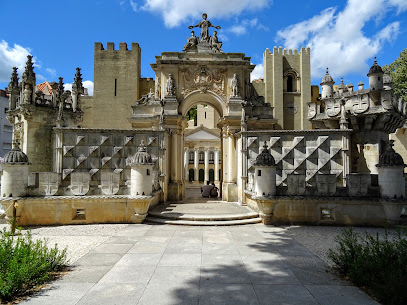
Palace of Schools
Explore the Palace of Schools in Coimbra, a stunning heritage building steeped in history and architectural beauty, perfect for culture enthusiasts and travelers.
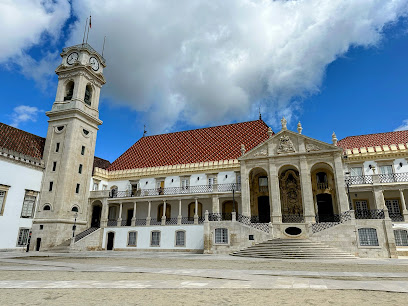
Conimbriga Ruins
Explore the captivating Conimbriga Ruins, where ancient Roman history comes alive through stunning architecture and fascinating artifacts.
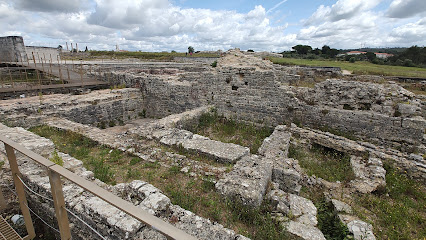
Santa Cruz Church
Explore the stunning Santa Cruz Church in Coimbra, a historical Catholic church and monastery reflecting Portugal's rich cultural heritage.
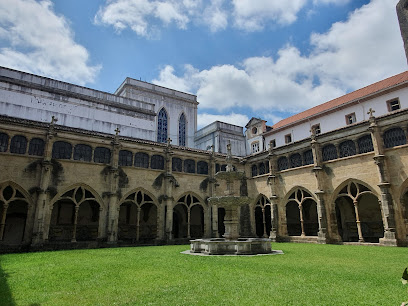
Mondego's Verde Park
Explore Mondego's Verde Park, a stunning urban oasis in Coimbra, where nature, tranquility, and local culture come together for an unforgettable experience.
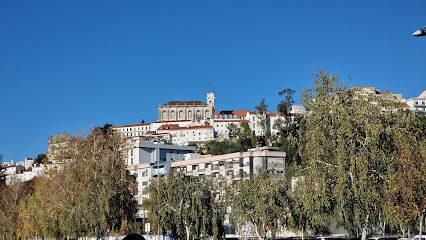
Jardim Botânico da Universidade de Coimbra
Discover the stunning biodiversity and serene beauty of Jardim Botânico da Universidade de Coimbra, a must-visit botanical garden in Portugal.
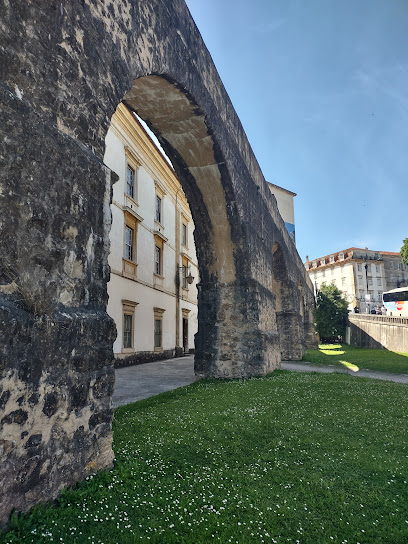
Sé Velha - Coimbra
Discover the timeless beauty and rich history of Sé Velha, Coimbra's iconic cathedral and a true masterpiece of Romanesque architecture.
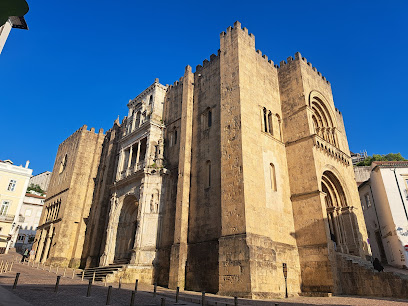
Choupal National Forest
Experience the tranquility and natural beauty of Choupal National Forest, a stunning national park near Coimbra, Portugal, perfect for outdoor activities and relaxation.
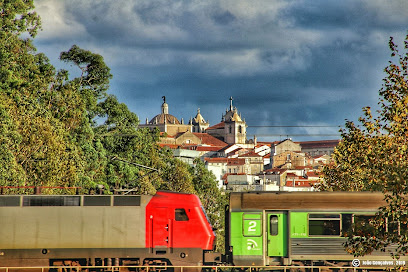
Praça da República
Explore Praça da República, a vibrant historical square in Coimbra, where rich culture meets stunning architecture and lively gatherings.
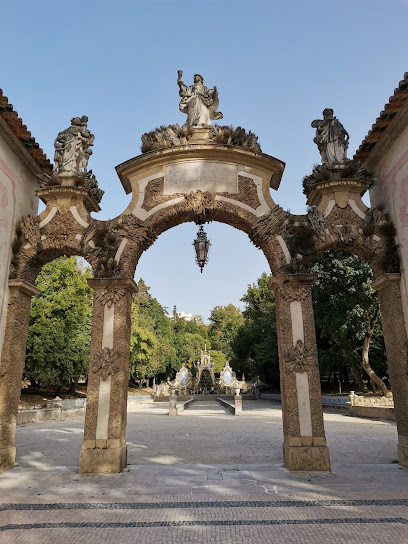
Jardins da Quinta das Lágrimas
Explore the enchanting Jardins da Quinta das Lágrimas in Coimbra, a serene garden rich in history, beauty, and romantic legends.
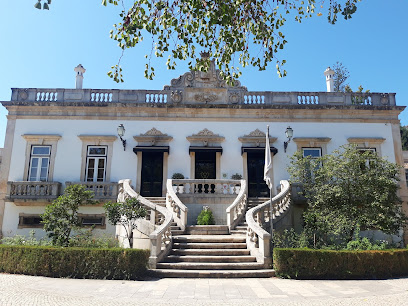
Sereia Garden
Explore the serene Sereia Garden in Coimbra, a lush urban park filled with vibrant flowers, tranquil paths, and a charming ambiance perfect for relaxation.
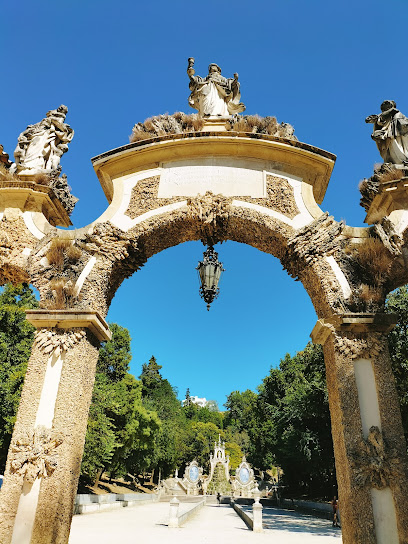
University of Coimbra
Discover the University of Coimbra, a UNESCO World Heritage site, renowned for its stunning architecture and rich educational history in Portugal.
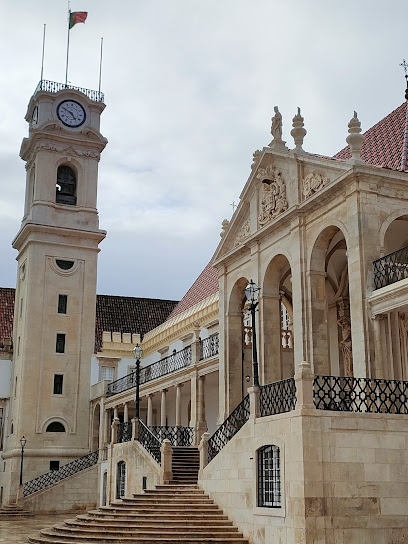
Barbican Gate
Experience the rich history and architectural beauty of Barbican Gate, a historical landmark in Coimbra, Portugal, that tells the stories of a vibrant past.
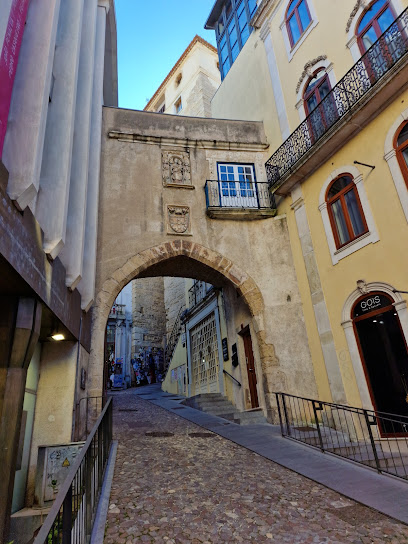
Monastery of Santa Clara-a-Nova
Explore the serene Monastery of Santa Clara-a-Nova in Coimbra, a blend of rich history and stunning architecture perfect for spiritual exploration.
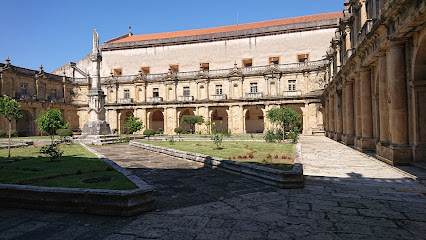
St Francis Convent
Explore the historical St. Francis Convent in Coimbra, a cultural center rich in heritage and stunning architecture, perfect for a serene visit.
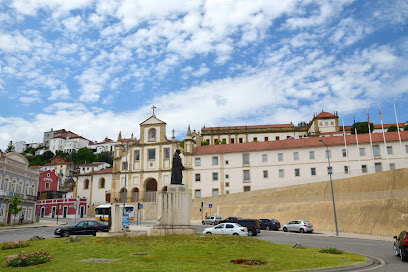
Unmissable attractions to see
Palace of Schools
Explore the Palace of Schools in Coimbra, Portugal—a UNESCO World Heritage Site and a beacon of academic history and stunning architecture.
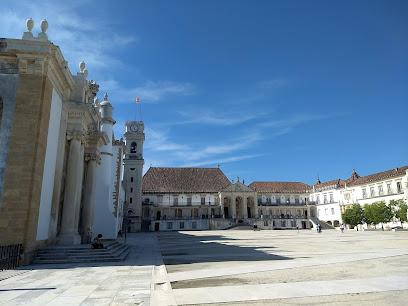
Historical Village of Piódão
Explore the enchanting Historical Village of Piôdão, a picturesque destination in Portugal with stunning architecture and rich cultural heritage.
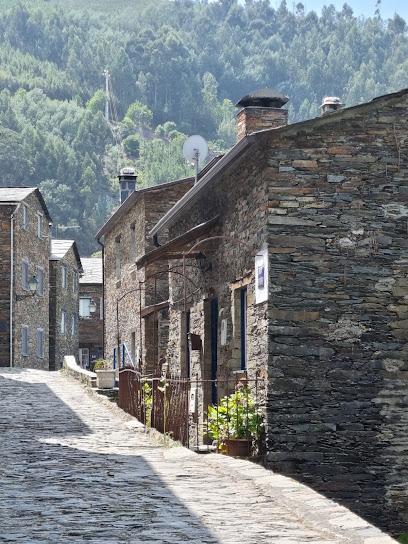
Conimbriga Ruins
Discover the captivating history of the Conimbriga Ruins, a remarkable archaeological site showcasing the grandeur of ancient Roman civilization in Portugal.
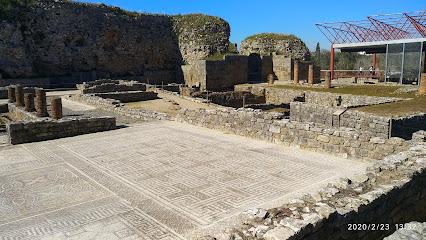
Castle of Montemor-o-Velho
Explore the historical and architectural wonder of the Castle of Montemor-o-Velho, a highlight of Portugal's rich cultural heritage.
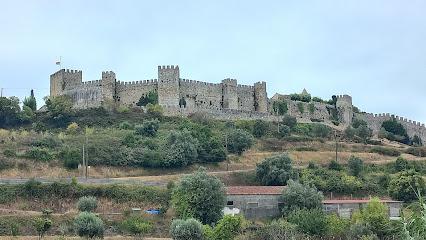
Santa Cruz Church
Explore the architectural beauty and rich history of Santa Cruz Church, a must-see Catholic landmark in Coimbra, Portugal.
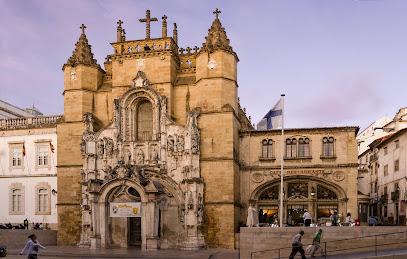
Jardim Botânico da Universidade de Coimbra
Explore the serene beauty of the Botanical Garden of Coimbra, a botanical gem filled with diverse flora and rich history in the heart of Portugal.
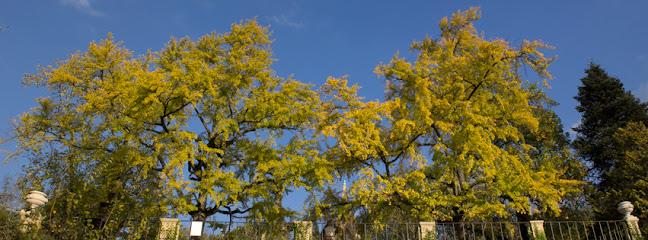
Mondego's Green Park
Explore Mondego's Green Park, a stunning urban oasis in Coimbra, perfect for relaxation, recreation, and cultural experiences along the picturesque riverbanks.

Old Cathedral of Saint Mary of Coimbra
Discover the architectural beauty and historical significance of the Old Cathedral of Saint Mary of Coimbra, a must-see landmark in Portugal's cultural heart.
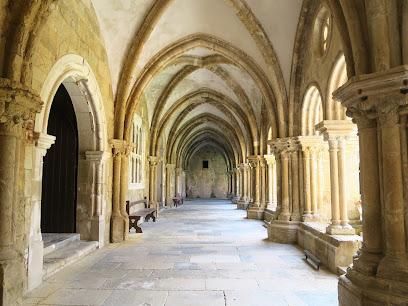
Choupal National Forest
Experience the natural beauty and tranquility of Choupal National Forest, a premier destination for outdoor enthusiasts in Coimbra, Portugal.
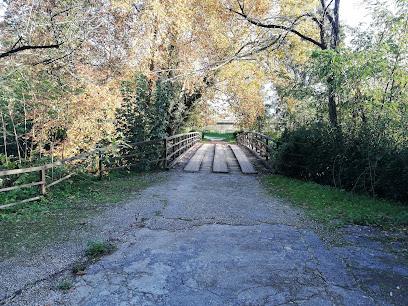
Castle of Lousã
Explore the historic Castle of Lousã, a stunning fortress with breathtaking views and rich cultural heritage in the heart of Portugal.
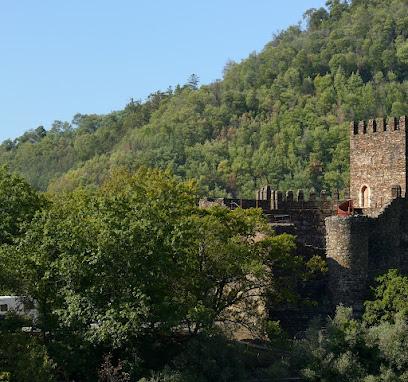
Buçaco National Forest
Discover the enchanting beauty of Buçaco National Forest, a serene escape filled with lush landscapes, rich biodiversity, and captivating history.
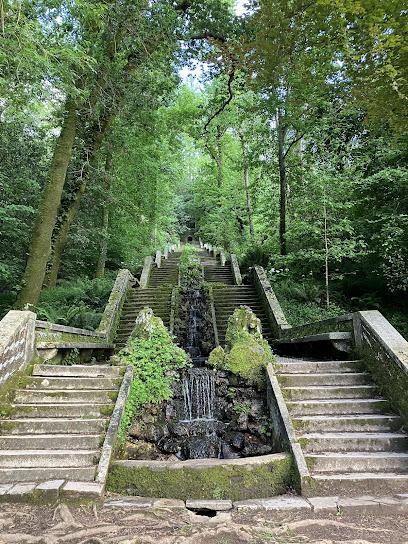
Museu Marítimo de Ílhavo e Aquário dos Bacalhaus
Explore Portugal's maritime heritage at Museu Marítimo de Ílhavo, home to captivating exhibits and the unique Aquário dos Bacalhaus.
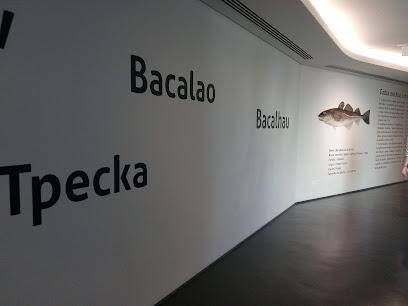
Fraga da Pena
Explore the enchanting Fraga da Pena in Benfeita, a stunning natural attraction featuring breathtaking waterfalls and lush landscapes.
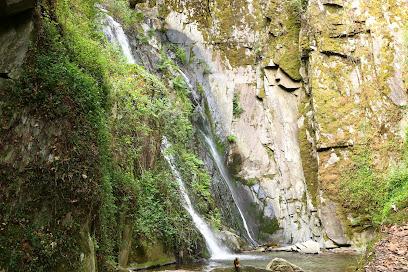
Sereia Garden
Discover the enchanting beauty of Sereia Garden in Coimbra, a lush park offering tranquility, culture, and picturesque landscapes for every traveler.
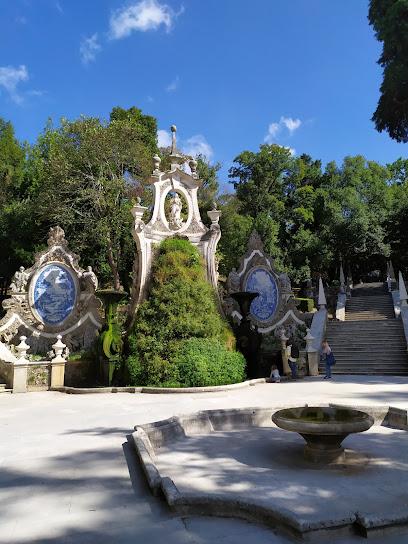
University of Coimbra
Explore the University of Coimbra, a UNESCO World Heritage site, blending centuries of history, stunning architecture, and vibrant student life in the heart of Portugal.
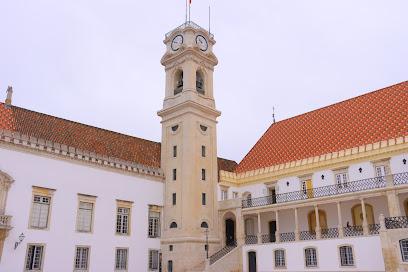
Essential places to dine
Restaurante Solar do Bacalhau
Experience authentic Portuguese cuisine at Restaurante Solar do Bacalhau in Coimbra - a must-visit for food enthusiasts.
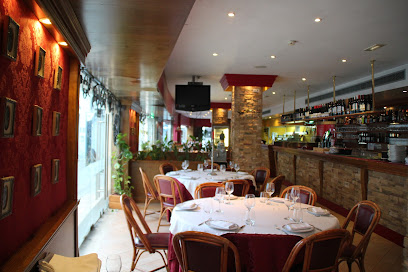
Brunn's Diner
Experience the essence of American fast food at Brunn's Diner in Coimbra - where every bite takes you on a flavorful journey.
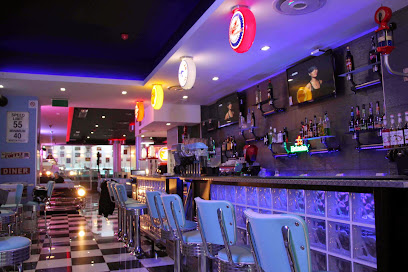
Restaurante Zé Manel dos Ossos
Discover authentic Portuguese cuisine at Restaurante Zé Manel dos Ossos in Coimbra - a must-visit for food lovers seeking traditional flavors.
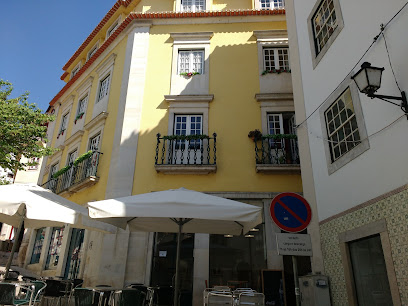
Itália
Savor Authentic Italian Flavors at Itália - A Culinary Gem in Coimbra Offering Exquisite Dishes in a Cozy Atmosphere.
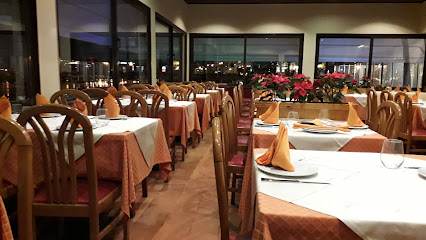
Dux Taberna Urbana
Discover authentic Portuguese flavors at Dux Taberna Urbana in Coimbra—a delightful blend of tradition and modernity awaits!
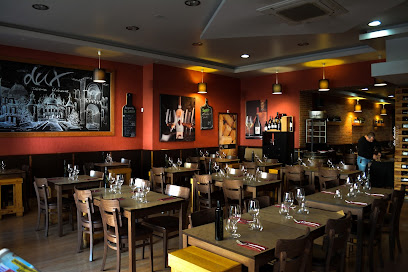
Restaurante Il Tartufo
Experience authentic Portuguese cuisine with a modern twist at Restaurante Il Tartufo in Coimbra – where every dish tells a story.
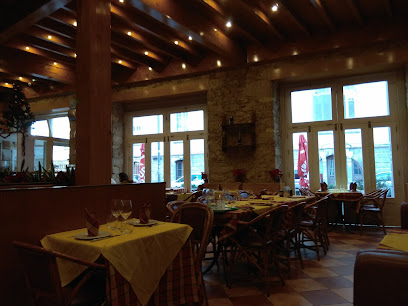
Restaurante Sete
Experience exquisite Portuguese cuisine at Restaurante Sete in Coimbra - where tradition meets contemporary dining.
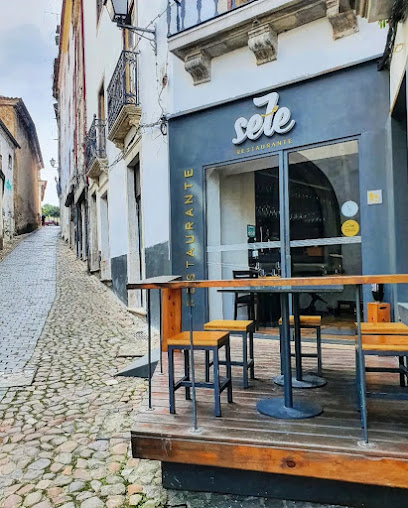
Restaurante PASSAPORTE Coimbra
Experience Coimbra's vibrant culinary scene at Restaurante PASSAPORTE – where local flavors meet lively nightlife.
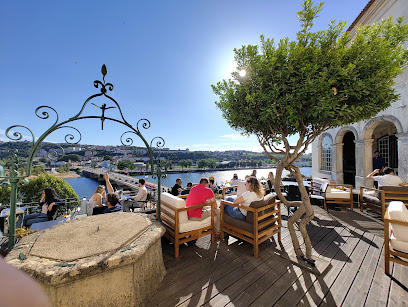
Arcada Comes e Bebes
Discover authentic Portuguese cuisine at Arcada Comes e Bebes in Coimbra – a delightful culinary journey awaits every visitor.
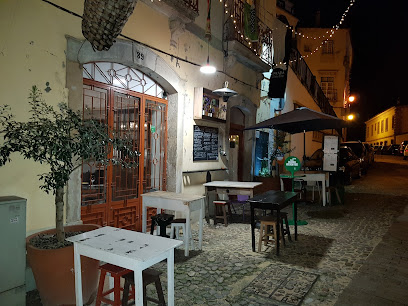
Restaurante Tapas nas Costas
Discover the vibrant flavors of Portugal at Restaurante Tapas nas Costas in Coimbra, where every dish tells a story.
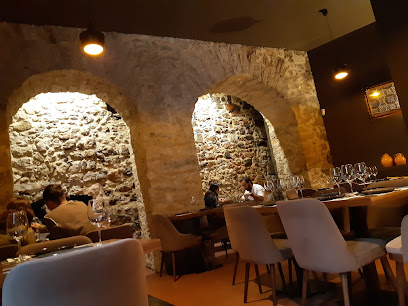
A Cozinha da Maria
Experience authentic Portuguese flavors at A Cozinha da Maria in Coimbra, where traditional dishes meet modern charm.
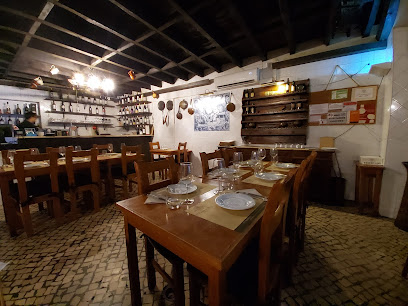
Restaurante Nacional
Discover authentic Portuguese cuisine at Restaurante Nacional in Coimbra – a culinary haven blending tradition with modern taste.
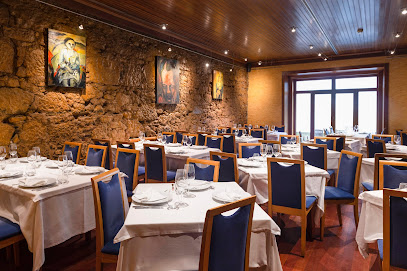
Cordel Maneirista
Discover the taste of Portugal at Cordel Maneirista in Coimbra - where tradition meets modern culinary excellence.
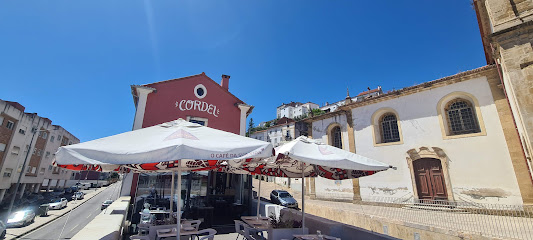
Restaurante Osteria 44
Discover authentic Italian cuisine at Restaurante Osteria 44 in Coimbra—where every meal is a celebration of flavors!
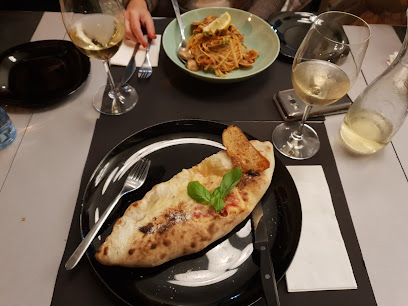
Honorato Coimbra
Discover Honorato Coimbra: A burger lover's dream in the heart of Portugal offering gourmet flavors in a vibrant setting.
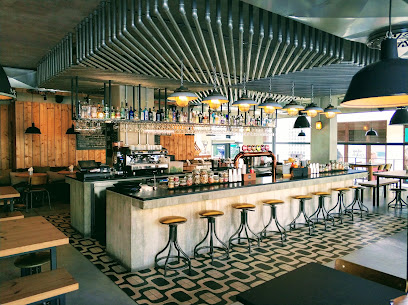
Markets, malls and hidden boutiques
Forum Coimbra
Discover Forum Coimbra, the largest shopping mall in Coimbra, filled with shops, dining, and entertainment for an unforgettable experience.

Alma Shopping
Discover a world of shopping, dining, and entertainment at Alma Shopping in Coimbra, where every visit is a new adventure.

Primark
Explore trendy clothing at Primark in Coimbra, where affordable fashion meets vibrant shopping in the heart of the city.
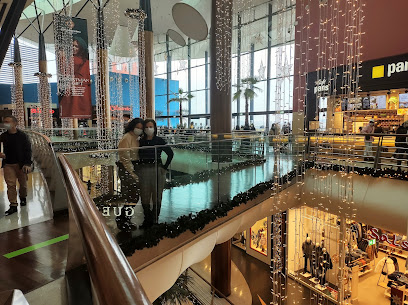
Centro Comercial CoimbraShopping
Experience the vibrant shopping scene at Centro Comercial CoimbraShopping, where retail therapy meets delightful dining and entertainment in Coimbra.
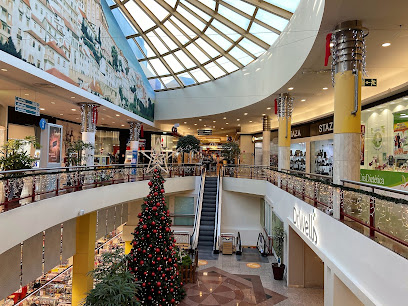
Flying Tiger Copenhagen
Explore the whimsical world of Flying Tiger Copenhagen in Coimbra, where fun gifts and unique home goods await every creative traveler.
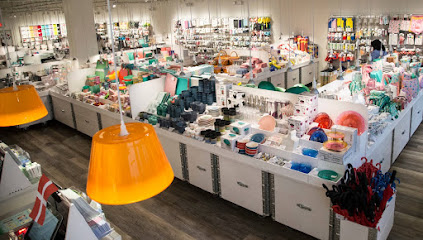
Sfera
Discover the latest fashion trends at Sfera, Coimbra's stylish clothing store, perfect for enhancing your wardrobe while exploring the city.

ZARA HOME
Discover exquisite home decor at ZARA HOME in Coimbra, where modern elegance meets timeless style for your living space.
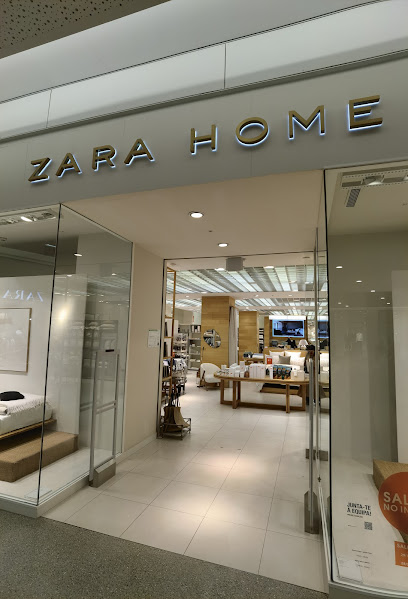
CASA Alma Coimbra
Explore CASA Alma Coimbra for unique gifts, stylish home goods, and exquisite garden furniture, all showcasing contemporary Portuguese design.
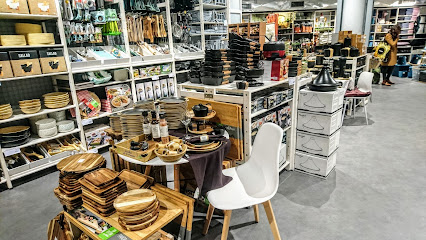
Mayoral - Loja de Roupa Infantil e Bebés
Discover stylish children's clothing and baby essentials at Mayoral in Coimbra's Alma Shopping, perfect for trendy little ones.

Massimo Dutti
Explore timeless sophistication and modern style at Massimo Dutti, Coimbra's premier destination for chic clothing and accessories.

Sacoor Brothers
Discover contemporary fashion at Sacoor Brothers in Coimbra, featuring stylish apparel and accessories for the whole family.

Pull & Bear
Discover the latest fashion trends at Pull & Bear in Coimbra, where style meets affordability for the modern shopper.
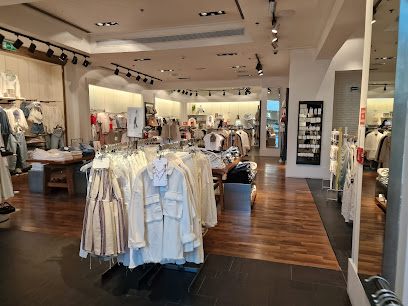
Quebramar
Discover the latest fashion trends at Quebramar, Coimbra's premier clothing store, offering a unique shopping experience in a vibrant atmosphere.
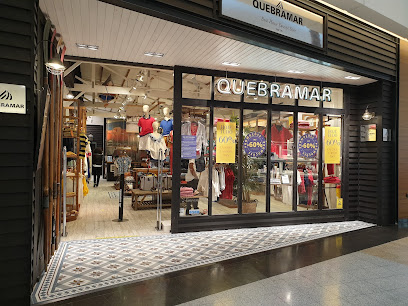
Bershka
Explore Bershka in Coimbra for trendy clothing and accessories that perfectly blend style and affordability, making it a must-visit for fashion lovers.

Boutique dos Relógios
Uncover an exquisite collection of timepieces at Boutique dos Relógios in Coimbra, where elegance meets craftsmanship in every watch.
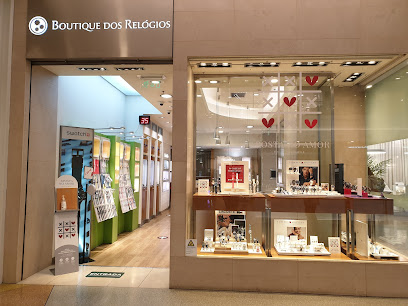
Essential bars & hidden hideouts
The Murphy's Irish Pub
Discover the vibrant atmosphere of The Murphy's Irish Pub in Coimbra, where live music and delicious food create unforgettable experiences.
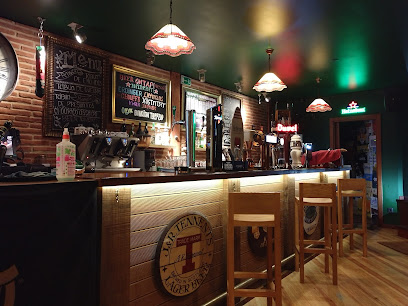
Galeria Santa Clara
Experience the vibrant atmosphere of Galeria Santa Clara, a charming bar and restaurant in Coimbra perfect for unwinding with friends.
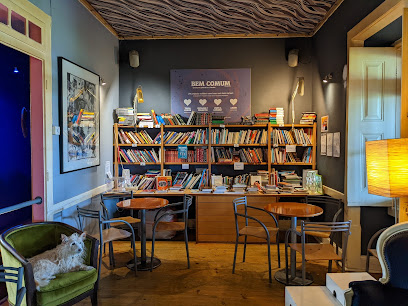
O Moelas
Explore the vibrant nightlife of Coimbra at O Moelas, where local culture and delicious drinks come together in a lively atmosphere.
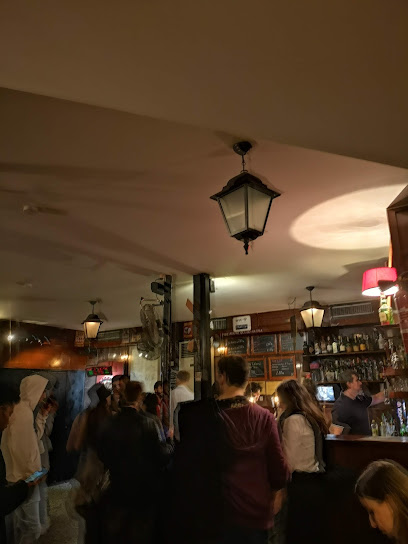
Liquidâmbar
Discover Liquidâmbar in Coimbra, where vibrant nightlife meets local flavors in a cozy and lively bar atmosphere.
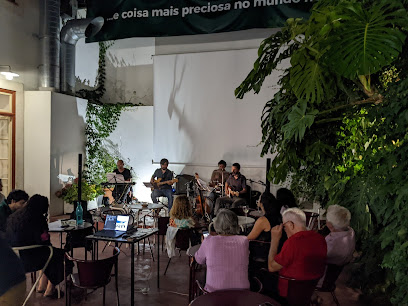
What's up Doc Bar
Discover Coimbra's nightlife at What's up Doc Bar, where delicious drinks and a friendly atmosphere await every visitor.
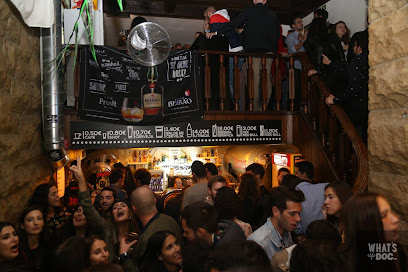
O Reitor
Discover the vibrant atmosphere of O Reitor, Coimbra's favorite bar offering exquisite drinks and a taste of local nightlife.
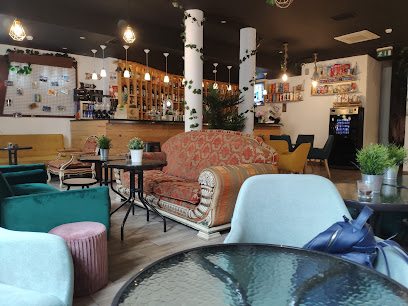
Coola Boola
Experience the vibrant culinary scene at Coola Boola in Coimbra, where local flavors meet innovative brewing and delightful atmosphere.
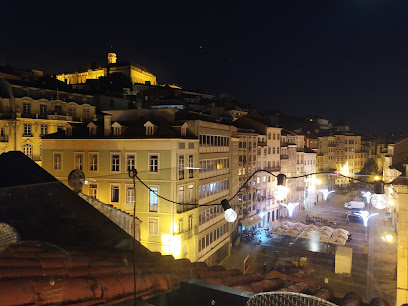
Cabido Bar, Lda.
Discover the essence of Coimbra nightlife at Cabido Bar, Lda., where great drinks and friendly vibes await you.
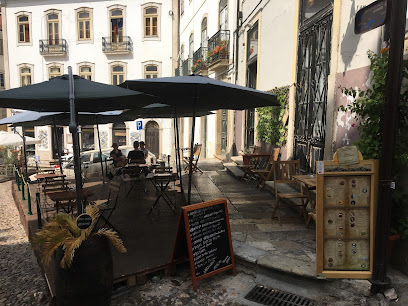
24 Bar
Unwind at 24 Bar in Coimbra, where vibrant nightlife, delicious cocktails, and local culture come together for an unforgettable experience.

Pinga Amor
Discover the vibrant nightlife of Coimbra at Pinga Amor, a cozy bar offering a warm atmosphere and affordable drinks in the heart of the city.
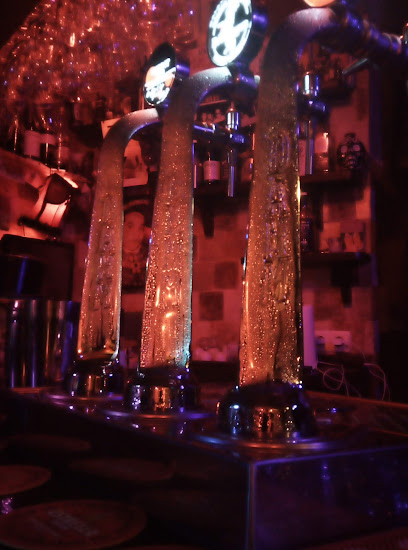
Coimbra Ó Porto
Experience the best of Coimbra at Coimbra Ó Porto, where exquisite wines and delicious tapas create unforgettable moments in a charming setting.
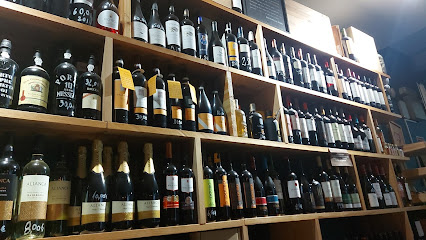
Piano Negro
Discover the vibrant nightlife of Coimbra at Piano Negro, a lively bar offering exquisite drinks and a welcoming atmosphere that captivates every visitor.
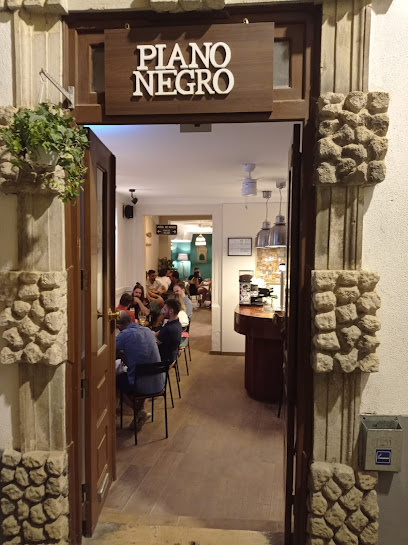
Kamartelo 2.0
Experience the vibrant nightlife of Coimbra at Kamartelo 2.0, where great drinks meet a lively atmosphere in the heart of the city.
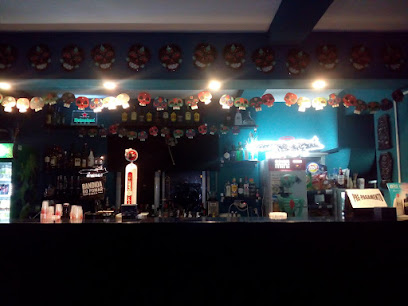
Quebra Bar
Experience the warmth and vibrancy of Coimbra at Quebra Bar, a local favorite for tasty drinks and lively atmosphere, perfect for unwinding after a day of exploration.
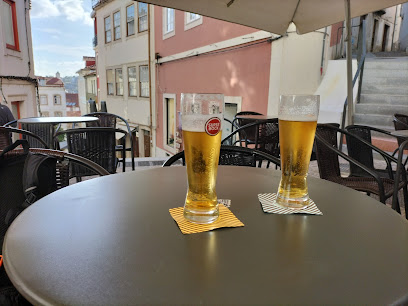
Travel experiences inspired by this city
Explore more travel diariesLocal Phrases
-
- HelloOlá
[oh-lah] - GoodbyeAdeus
[ah-deh-oosh] - YesSim
[seem] - NoNão
[now] - Please/You're welcomePor favor/De nada
[por fah-vohr/deh nah-dah] - Thank youObrigado
[oh-bree-gah-doo] - Excuse me/SorryDesculpe/Desculpa
[deh-skool-peh/deh-skool-pah] - How are you?Como está?
[koh-moh ehs-tah] - Fine. And you?Estou bem. E você?
[ehs-toh-oo behn. eh voh-seh] - Do you speak English?Fala inglês?
[fah-lah een-glehsh] - I don't understandNão entendo
[now ehn-tehn-doo]
- HelloOlá
-
- I'd like to see the menu, pleaseGostaria de ver o menu, por favor
[goh-stah-ree-ah deh vehr ooh meh-noo, poor fah-vohr] - I don't eat meatNão como carne
[now koh-moo kahr-neh] - Cheers!Saúde!
[sah-oo-deh] - I would like to pay, pleaseGostaria de pagar, por favor
[goh-stah-ree-ah deh pah-gahr, poor fah-vohr]
- I'd like to see the menu, pleaseGostaria de ver o menu, por favor
-
- Help!Socorro!
[soh-koh-roh] - Go away!Vai embora!
[vah-ee ehm-boh-rah] - Call the Police!Chame a Polícia!
[shah-meh ah poh-lee-see-ah] - Call a doctor!Chame um médico!
[shah-meh oom meh-dee-koo] - I'm lostEstou perdido
[ehs-toh pehr-dee-doo] - I'm illEstou doente
[ehs-toh doo-ehn-teh]
- Help!Socorro!
-
- I'd like to buy...Gostaria de comprar...
[goh-stah-ree-ah deh kohm-prahr...] - I'm just lookingEstou só a ver
[ehs-toh soh ah vehr] - How much is it?Quanto custa?
[koo-ahn-too koosh-tah] - That's too expensiveIsso é muito caro
[ee-soh eh mwee-toh kah-roo] - Can you lower the price?Pode baixar o preço?
[poh-deh bahy-shahr ooh preh-soo]
- I'd like to buy...Gostaria de comprar...
-
- What time is it?Que horas são?
[keh oh-rahz sao] - It's one o'clockÉ uma hora
[eh oo-mah oh-rah] - Half past (10)Meia hora (10)
[may-ah oh-rah (dohs-ehs)] - MorningManhã
[mah-nyah] - AfternoonTarde
[tahr-deh] - EveningNoite
[noy-tay] - YesterdayOntem
[ohn-tehm] - TodayHoje
[oh-zhay] - TomorrowAmanhã
[ah-mah-nyah] - 1Um
[oom] - 2Dois
[doysh] - 3Três
[trehsh] - 4Quatro
[kwah-troh] - 5Cinco
[seen-koh] - 6Seis
[saysh] - 7Sete
[seh-teh] - 8Oito
[oy-toh] - 9Nove
[noh-veh] - 10Dez
[dehsh]
- What time is it?Que horas são?
-
- Where's a/the...?Onde está o/a...?
[ohn-deh ehs-tah ooh/ah] - What's the address?Qual é o endereço?
[kahl eh ooh ehn-deh-reh-soo] - Can you show me (on the map)?Pode mostrar-me (no mapa)?
[poh-deh moh-strahr-meh (noo mah-pah)] - When's the next (bus)?Quando é o próximo (autocarro)?
[koo-ahn-doo eh ooh proh-ksee-moh (ow-toh-kah-roo)] - A ticket (to ....)Um bilhete (para ....)
[oom bee-lyeh-teh (pah-rah)]
- Where's a/the...?Onde está o/a...?
History of Coimbra
-
Coimbra's history dates back to Roman times when it was known as Aeminium. The city was an important administrative hub within the Roman Empire. Significant remnants from this period include the cryptoporticus, an underground gallery beneath the Machado de Castro National Museum, which showcases ancient Roman engineering.
-
In the medieval period, Coimbra gained prominence when it became the capital of the newly formed Kingdom of Portugal in 1139 under the reign of King Afonso I. During this time, the city grew as a political and cultural center, with the construction of the Old Cathedral of Coimbra (Sé Velha) and the Monastery of Santa Cruz, where the first two kings of Portugal are buried.
-
Founded in 1290 by King Dinis, the University of Coimbra is one of the oldest universities in the world. Initially established in Lisbon, it was permanently moved to Coimbra in 1537, making the city a beacon of education and intellectual pursuit. The university's historic buildings, such as the Joanina Library and the Royal Palace of Alcáçova, add to its academic prestige.
-
During the Age of Discoveries in the 15th and 16th centuries, Coimbra played a crucial role in training navigators and scholars who contributed to Portugal's maritime explorations. The university was instrumental in disseminating knowledge and innovations that fueled the era's exploratory spirit.
-
Coimbra was a significant site during the Liberal Wars (1828-1834), a civil conflict between liberal constitutionalists and absolutists in Portugal. The city witnessed several battles and was a strategic location for the liberal forces. The victory of the liberals led to the establishment of a constitutional monarchy in Portugal.
-
In 1969, Coimbra became a focal point of political unrest when university students led significant protests against the authoritarian Estado Novo regime. These protests were part of a broader movement that eventually contributed to the Carnation Revolution in 1974, which restored democracy in Portugal.
-
In 2013, the University of Coimbra – Alta and Sofia was designated as a UNESCO World Heritage Site. This recognition highlights the city's historical and cultural significance, particularly its enduring legacy in education, architecture, and urban planning.
Coimbra Essentials
-
Coimbra is well-connected and accessible by various means of transportation. The nearest international airport is Francisco Sá Carneiro Airport in Porto, around 120 kilometers north of Coimbra. From Porto, you can take a direct train or bus to Coimbra, which typically takes about 1.5 to 2 hours. Alternatively, Humberto Delgado Airport in Lisbon is approximately 200 kilometers south of Coimbra, and the journey by train or bus from Lisbon to Coimbra usually takes around 2 to 2.5 hours. Coimbra also has a well-serviced train station, Coimbra-B, which connects to major cities in Portugal.
-
Coimbra has an efficient public transportation system, including buses and taxis. The city's buses are operated by SMTUC and cover most tourist attractions and neighborhoods. Taxis are readily available, and ride-hailing services like Uber also operate in Coimbra. For exploring the historic center, walking is the best option due to the narrow streets and pedestrian zones. There are also bicycle rental services for those who prefer to cycle. If you plan to explore the surrounding areas, renting a car is a convenient option.
-
The official currency in Portugal is the Euro (EUR). Credit and debit cards are widely accepted in hotels, restaurants, and shops in Coimbra. However, it is advisable to carry some cash, especially for smaller establishments and markets. ATMs are easily accessible throughout the city. Most major international credit cards such as Visa and MasterCard are accepted, but it's always good to confirm beforehand.
-
Coimbra is generally a safe city for tourists. However, like any other city, it is important to remain vigilant and take standard precautions. Avoid walking alone late at night, especially in poorly lit areas. Keep an eye on your belongings in crowded places to avoid pickpocketing. The areas around the university and the historic center are generally safe, but it’s best to be cautious in less populated neighborhoods.
-
In case of emergency, dial 112, the European emergency number for police, fire, and medical services. Coimbra has several hospitals and clinics that provide emergency medical care, including the University Hospital of Coimbra. Pharmacies (farmácias) are plentiful and can provide over-the-counter medications and basic medical advice. It is advisable to have travel insurance that covers medical emergencies.
-
Fashion: Do dress smart-casual for most places; avoid overly casual attire like beachwear when not at the beach. Religion: Do respect local customs, especially in religious sites; cover your shoulders and knees when visiting churches. Public Transport: Do give up your seat for the elderly and pregnant women; don't talk loudly or play loud music. Greetings: Do greet people with a handshake; a polite 'Bom dia' (Good morning) or 'Boa tarde' (Good afternoon) is appreciated. Eating & Drinking: Do try local dishes like 'Leitão à Bairrada' and 'Pastel de Tentúgal'; don’t leave a tip on the table, as service is usually included in the bill.
-
To experience Coimbra like a local, visit the Mercado D. Pedro V for fresh produce and local delicacies. Explore the 'Repúblicas,' traditional student houses with a unique atmosphere. Attend a Fado de Coimbra performance, a traditional genre of music unique to the city. Wander around the Botanical Garden of the University of Coimbra, one of the oldest in Europe. Don’t miss the Joanina Library, a baroque masterpiece located within the University of Coimbra.
Trending Landmark in Coimbra
-
Portugal dos Pequenitos
-
Palace of Schools
-
Conimbriga Ruins
-
Santa Cruz Church
-
Mondego's Verde Park
-
Jardim Botânico da Universidade de Coimbra
-
Sé Velha - Coimbra
-
Choupal National Forest
-
Praça da República
-
Jardins da Quinta das Lágrimas
-
Sereia Garden
-
University of Coimbra
-
Barbican Gate
-
Monastery of Santa Clara-a-Nova
-
St Francis Convent

























